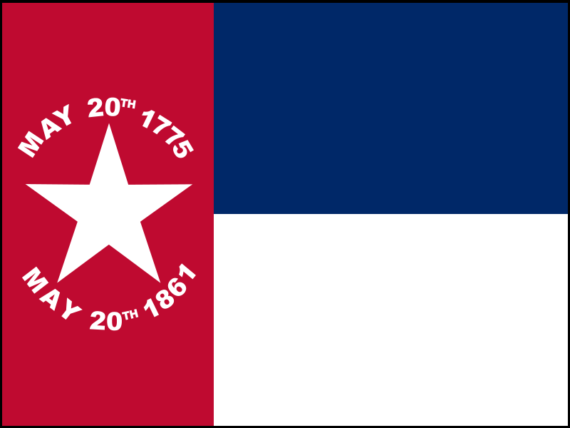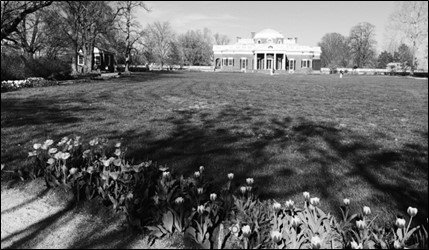An article by a Canadian historian in a recent issue of the North Carolina Historical Review lays to rest an old canard—the charge that during the War for Southern Independence North Carolina soldiers were notable for desertion. After an exhaustive study of all available records, Professor Richard Reid concluded that it simply is not so. North Carolina had more deserters for only one reason: because it had more men in the Confederate Army than any other State. But the percentage of deserters compares favorably with other States.
The research turned up by Reid sheds some interesting light on the war and the Confederate effort. Desertion was not always desertion. Confederate records did not make the modern distinction between desertion and AWOL, leading to over-estimation of the former. And being AWOL from the Confederate Army was not usually a product of “Unionism.” Just as Southern folk tradition has it, soldiers tended to leave when they were exhausted or in order to care for families in areas ravaged by the enemy, and they often returned to the ranks when they had recuperated or finished their business at home. The “Unionism” of the Western mountain region of North Carolina has also been greatly exaggerated. The troops from that area served as loyally and well as any others. The Tar Heels got a reputation for disloyalty from irresponsible Richmond news-papers, Reid surmises.
It is good to have old falsehoods put to rest. There are no better Southerners anywhere than the common folk of North Carolina. They have remained loyal to the inherited ways while many of their prosperous neighbors have sold out for a mess of pottage. It is Charlie Daniels, from Wilmington, who tours the Midwest with the Battle Flag flying, and Doc Watson, from Asheville, who finishes every concert with “Dixie.” It is Andy Griffith from Mount Airy who succeeded in making the most durable favorable impression a Southerner has ever made on the mass media. And what about Richard Weaver? Sam Ervin? Jesse Helms?
The data on Confederate desertions provides an interesting comparison with modern American armies. The Confederate army had a much wider age distribution among the men in the ranks. Every age from 15 to 50 was substantially represented. This people’s army is in stark contrast with recent American wars where the combat arms were disproportionately made up of men, many of them Southerners, who were either too young, too naively patriotic, or too lacking in influence to get safer assignments.
There are many honorable exceptions, of course, but it is broadly true that in American wars, the privileged and well-to-do, who ought to lead in war as well as peace, seldom do. In World War II a lot of “smart” conservatives stayed home and made big bucks in war industries and a lot of “smart” liberals had desk jobs in Washington where they wrote propaganda to establish what the war was “about” and drew up plans for the social engineering to be implemented after the war was over. The actual fighting and dying and the men who were doing it was the last thing that ever crossed the consciousness of the average Washington liberal.
The extent to which the fighting forces in World War II were made up of Southerners, referred to contemptuously in those days as “hillbillies,” is indicated by the British slang name for the American flying arm: “The Royal Texas Air Force,” and by the apocryphal story that Japanese suicide charges used to be prefaced by the shout: “To hell with Roosevelt! To hell with Babe Ruth! To hell with Roy Acuff!” I don’t have figures to prove it, but I suspect the story was not a lot different in Vietnam. Southerners didn’t do it alone, of course; but they did their share or more and, as usual, got no thanks for it. Needless to say, the war experienced by the “hillbillies” in the field was quite a different war from that experienced in the high-profit, high-wage economy and Hollywood mass consciousness at home.
There has been a tendency in recent years for historians to disparage the Confederate war effort—to emphasize defeatism, lack of will to win, etc. Of course, those elements were present in the War of Southern Independence, as in any human effort. However, any just and sensible view cannot escape the conclusion that by American standards the Confederate effort was the most heroic in our history.
Suppose that during World War II the Germans had taken New York and were advancing on Cincinnati; that the Japanese had taken LA and were moving east; that the enemy controlled all the transportation arteries and was making war on the civil population; that the economy was staggering; that not just healthy young men were being sent into the trenches but the old, the sick, and the wounded as well. How would American morale have held up? But this was exactly the situation of the Confederacy by 1864, yet the fight was kept up. Defeatists? Not according to General Sherman, who was moaning in the late winter of 1865 that the damned Rebels had already been beat, had already lost everything, but wouldn’t give up! Surrender came, not when the will to fight had disappeared, but when leaders like General Lee decided there was no longer means to carry on resistance without resort to all-out guerilla warfare. Being the kind of men they were, the Confederates chose what they considered a conditional surrender to a struggle that would have been most damaging to their own people.
The Confederate War was a people’s war. Some 12,000 North Carolinians were killed in World War II. If the percentage had been the same as of the white male population who died in the Civil War, there would have been 300,000 deaths (one in four men). Liberals are always rummaging through history looking for “people’s movements.” Usually what they come up with looks a lot more like a cocktail party conspiracy or an obstinately unsystematic labor revolt than a people’s movement. The Southern War of Independence, far and away, was the biggest and most authentic people’s movement in American history.
(1982)







